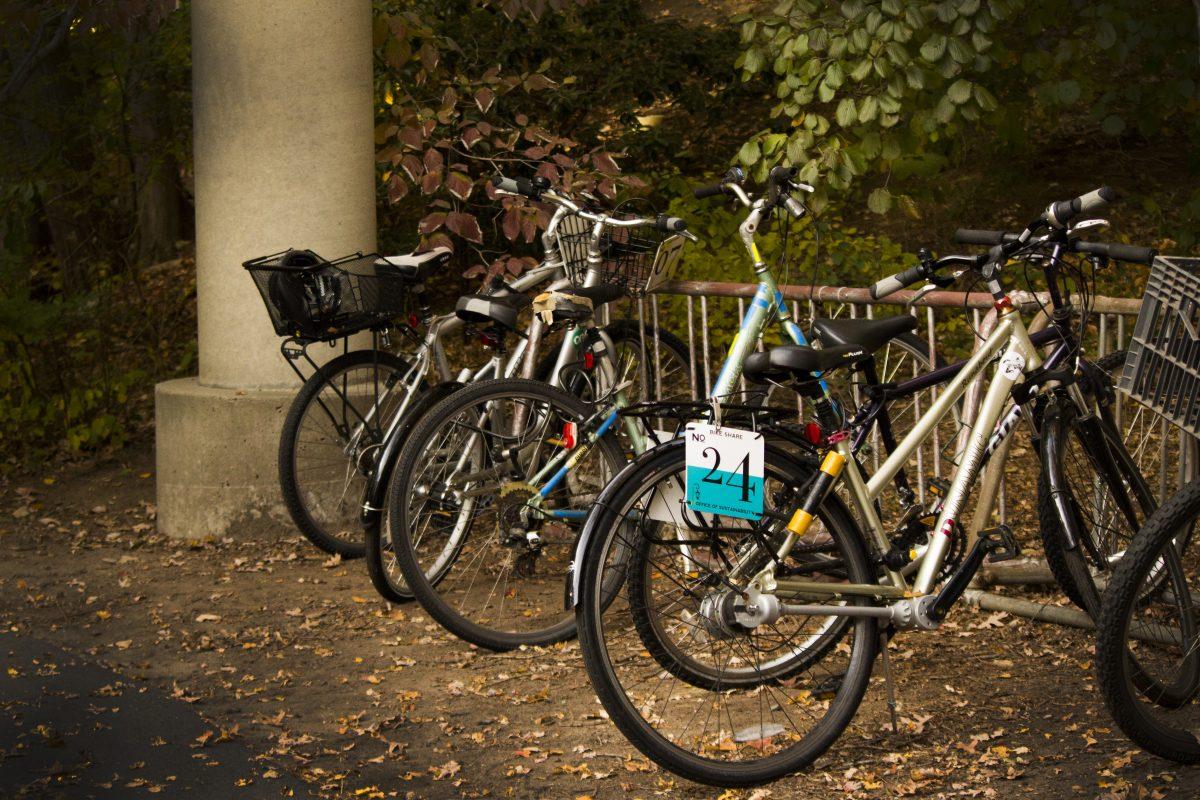The Sustainable Living Certification (SLC) Program, relaunched this fall semester, aims to encourage Wellesley students to adopt more sustainable lifestyle practices. Run by the Office of Sustainability with the support of each residence hall’s Eco-Rep, the initiative also aims to increase awareness of how one’s daily actions can impact the environment.
The SLC Program was mooted at the end of the Spring 2015 semester by Eco-Rep Coordinator Xi Xi ’17, who was then hired as an intern at the Office of Sustainability.
“We wanted to do something more substantial with Eco-Reps, and many universities have such a program.” Xi explained. All Eco-Reps are involved in the SLC program as auditors and are also to act as ambassadors for the program with the responsibility of publicizing the program and encouraging students in their residence hall to get certified.
According to Xi, more than 30 students have gotten their rooms certified. The certification process involves a Wellesley student contacting either their Eco-Rep, the Office of Sustainability or the Eco- Rep Coordinator about getting their room certified to date. All students are certified individually, though it is encouraged for those living with roommates to be audited at the same time as their roommates.
The auditing process takes 30 to 45 minutes, whereby the Eco-Rep asks the student questions off the Sustainable Living Checklist. Points are awarded for certain practices are awarded, and they are totaled up at the end of the auditing process to ascertain the level of certification — from the lowest of “One-leaf” to the highest of “Five-leaf”. Each level of certification is worth seven credits, which can then be exchanged for prizes such as a $10 El Table voucher, Peter Pan punch passes and Diva cups. Re-certification is also possible, making the initiative one that aims to be continuous so as to encourage the adoption of new sustainable living habits.
The checklist nature of the certification also aims to act as a reminder of and resource for what actions can be taken to live sustainably. Given the wide variety of practices stated on the checklist that can contribute to living sustainably, the basic levels of certification aim to be very achievable, even for students that may feel they are not as environmentally-friendly.
Adele Clifford ‘16 highlighted the ease of certification and cited the incentive of getting prizes as a motivation for getting her room re-certified this fall.
“Everyone should get certified, because some pretty basic environmental practices are enough to get a one-leaf rating, and then you get a prize, and everyone likes prizes.” Clifford said. “It was good to be reminded of certain environmental practices which I am not as good at, as well as making sure that I am doing things as environmentally friendly as possible. There are certain checklist items that I did not meet;for example, I am not a vegetarian or vegan and do not plan on becoming one.But it was quite gratifying to see that I am doing a lot of environmentally friendly things.”
Some habits stated on the checklist such as cleaning the lint trap of the dryer machines, or not owning a mini-fridge are perhaps easier for most students to adopt. However, other practices might be more of a challenge. Cathy Ye ’19, Eco-Rep for Stone-Davis, noted that sustainable printing habits might be tough for some to practice.
“Printing is hard, because you can be more of a visual and hands-
on learner. Even for myself, I find that it’s easier when you have a physical copy in front of you. If you feel bad about printing, printing two pages on one page, or reducing margins and the font size are all ways to decrease paper usage. And it’s easy to do,” Ye noted.
With Wellesley’s Sustainability Advisory Committee having released its draft sustainability plan recently, the SLC Program also fits nicely with the College’s overall direction to become a more sustainable institution.
Upcoming additions to the execution of the program include sending out actual certificates to students who have been certified to act as visual reminders to live sustainably. Xi also acknowledged the need to make auditing an easier process for Eco-Reps to carry out, as there is a limited number of Eco-Reps available to carry out audits and constant auditing is a large time commitment for the Eco-Rep.
Xi expressed her hopes for more people to be certified, and in so doing, adopting a more sustainable lifestyle.“It’s not hard to be sustainable! It’s not hard!” Xi exclaimed.
PHOTO COURTESY OF MEGAN STORMBERG ’18, PHOTOGRAPHY EDITOR






